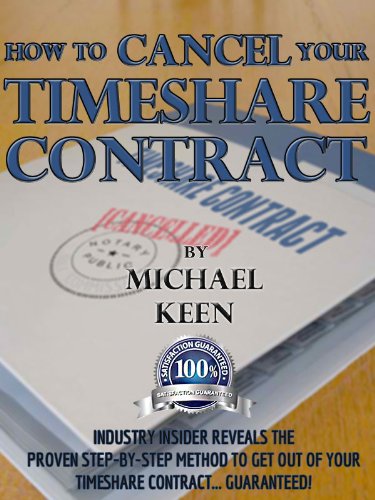If the vacationing prospects refuse to take the tour, they may discover the price of their accommodations considerably increased, perhaps be directed to leave the property, and all rewards withdrawn or voided. The prospective purchasers (thus described as potential customers) are seated in a hospitality space (a term designated by the land sales market in the 1960s) with lots of tables and chairs to accommodate households. The potential customers are assigned a trip guide. This individual is usually a licensed realty representative, however not in all cases. The actual cost of the timeshare can just be estimated by a certified real estate agent in the United States, unless the purchase is a right to utilize as opposed to an actual real estate transaction by means of ownership.
After a warm-up period and some coffee or snack, there will be a podium speaker welcoming the prospects to the resort, followed by a film created to impress them with unique places they might visit as timeshare owners. The potential customers will then http://www.wesleygroupfinancial.com/when-it-finally-clicks-wesley-financial-group-reviews-strides-against-timeshare-fraud-problems/ be invited to take a trip of the home. Depending upon the resort's readily available stock, the tour will include a lodging that the tourist guide or representative feels will best fit the prospect's family's requirements. After the trip and subsequent return to the hospitality space for the spoken sales discussion, the potential customers are given a brief history of timeshare and how it relates to the getaway market today.
The prospects will be asked to inform the trip guide the locations they want to visit if they were timeshare owners. The rest of the presentation will be designed around the responses the potential buyers provide to that concern. If the guide is licensed, the prospect will be quoted the list price of the specific unit that best appeared to fit the potential purchaser's needs. If the tourist guide is not a certified representative, a licensed representative will now action in to present the rate. If the possibility replies with "no", or "I would like to think of http://www.timesharetales.com/faqs/ it", the prospect will then be provided a new incentive to buy.
If once again, the reply is "no", or "I would like to believe about it", the sales representative will ask the possibility to please talk with one of the managers prior to the possibility leaves. It is at this moment that the prospect realizes that the tour has actually just begun. A sales supervisor, assistant supervisor or project director will now be contacted us to the table. This procedure is called: "T.O.", or getting the turn over man to find a reward usually in the form of a smaller more economical system or a sell unit from another owner. This strategy is frequently used as a sales tactic, due to the fact that the resort is not thinking about reselling already deeded residential or commercial property.


If one incentive does not move a prospect to buy, another will follow shortly, till the prospect has actually either acquired, convinced the generally extremely polite sales crew that no means no, or has actually gotten up from the table and left the building. Timeshare sales are typically high-pressure and fast-moving affairs. Some individuals get caught up in the enjoyment of the sales presentation and sign an agreement, just to understand later on that they may have slipped up. U.S. Federal Trade Commission mandates a "cool down duration" that allows individuals to cancel some types of purchases without charge within 3 days. In addition, nearly all U.S.
Examine This Report on How To Get Out Of Worldmark Timeshare Ovation
In Florida, a brand-new timeshare owner can cancel the purchase within ten days. The law varies by jurisdiction regarding whether out-of-state buyers are subject to the rescission period of their state of residence, or the rescission duration of the state where the timeshare purchase was made (e. what does float week mean in timeshare. g., in Florida, the 10-day rescission duration uses to all buyers; hence, a Texas purchaser who would only have 5 days in Texas, has the entire 10-day duration allocated by Florida Statutes). Another common practice is to have the prospective purchaser indication a "cancellation waiver", using it as an excuse to lower the cost of the timeshare in exchange for the buyer waiving cancellation rights (or paying a penalty, such as losing 10% of the purchase price, if the sale is cancelled).
If a current timeshare buyer wants to rescind or cancel the timeshare contract, the intent to cancel must be made within the allocated time duration in composing or face to face; a telephone call will not be enough. Over the last few years, a timeshare cancellation industry has actually formed by business who supply one simple service: timeshare cancellations. Nevertheless, a few of these business are thought of being deceptive. It is more than likely that a brand-new timeshare owner could have acquired the same item from an existing owner on the timeshare resale market for considerably less than what the buyer paid from the resort developer, simply by doing a computer system search.
The new buyer usually pays just minimum property transfer costs and accepts take control of the maintenance costs, since the existing owner can't find a purchaser for his/her timeshare without paying a resale business thousands of dollars to absorb it for resale. The reason for this abnormality is that the lion's share of the cost of a brand-new timeshare are sales commissions and marketing overhead, and can not be recovered by the timeshare owner. Another reason a new owner might want to cancel is purchaser's remorse following the subsidence of enjoyment produced by a sales presentation. He may have realized that he is uncertain what precisely has actually been acquired and how it works, or might have recognized the unrestricted period of a commitment to pay ownership upkeep costs, or might have observed that he understands insufficient about the timeshare sales business, due to inadequate time throughout the sales procedure (where to post timeshare rentals).
Likewise known as Universal Lease Programs (ULPs), timeshares are considered to be securities under the law. Many timeshare owners complain about the annual upkeep cost (that includes real estate tax) being too expensive. Timeshare developers compete that prices compared to remaining at hotels in the long term is forecasted to be lower to the timeshare owner. Nevertheless, a hotel visitor does not have a monthly getaway home loan payment, in advance expense, repaired schedule, upkeep fees, and preset getaway areas. Lots of owners likewise complain that the increasing expense of timeshares and accompanying maintenance and exchange costs are rising faster than hotel rates in the very same locations.
" The reduced rate I quoted you is only excellent if you buy today", is the market requirement's pitch to close the sale on the first visit to the resort. timeshare technology to show what x amount of points get someone. Lots of have actually left a timeshare trip suffering being exhausted by the barrage of salespeople they had to handle before they lastly left the trip. The term "TO", or "turn over" male, was coined in the land industry, and rapidly evolved to the timeshare market. As soon as the original tourist guide or salesperson gives the prospective buyer the pitch and rate, the "TO" is sent out in to drop the price and protect the deposit.